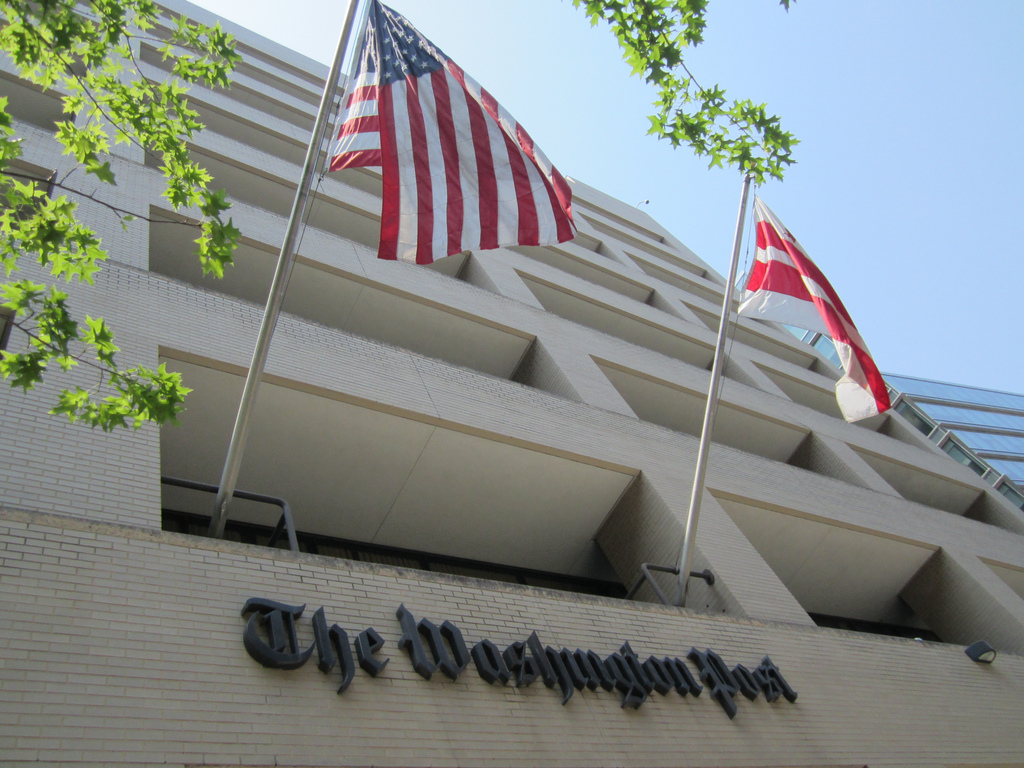U.K. police investigating email cover-up accusations against new Washington Post publisher
London police are investigating the Washington Post’s new publisher, Will Lewis, for allegedly leading an effort to cover up the phone hacking scandal involving British tabloids in 2011.
Former British Prime Minister Gordon Brown revealed the probe in an opinion piece in the Guardian newspaper yesterday. Brown, who served as the country’s prime minister from 2007 to 2010, explained how he recently pressed police to investigate Lewis, who he says oversaw the destruction of numerous pieces of evidence, including millions of emails, related to the case in his capacity as an executive for Rupert Murdoch’s News International, which owned the News of the World. He cited new evidence demonstrating Lewis’s role in the form of documents that were recently made public in civil court proceedings.
British police have already set up a “special enquiry team” that will be tasked with looking into Brown’s allegations.
Investigations have already concluded that employees of the tabloid tapped the phones of numerous politicians, celebrities, ordinary people and members of the British royal family as they sought scoops for their publications. The revelations led to intense public backlash that spurred several major resignations. Murdoch stepped down as the director of News Corporation in response, and the paper was closed in 2011.
Brown also claimed that Lewis tried to mislead police by accusing the former PM of trying to steal emails that were related to the hacking investigation.
Brown wrote: “He tried to blame me by explaining to the police that he had been told that I… was conspiring to steal these emails. The Murdoch team implied I had bribed one of their former employees to do so.”
“Blazoned across the top of every edition of the Washington Post is the statement, ‘Democracy dies in darkness’,” he went on. “But what if the publisher himself is a master of the dark arts?”
Although Murdoch’s company conceded that the allegedly deleted emails were indeed missing, they maintain that an upgrade to their email system is what caused the mass disappearance rather than a deliberate mass deletion aimed at hiding evidence. However, Lewis told police at the time that they removed the emails following a tip that Brown was trying to steal them, even though Lewis admitted that he had no evidence backing up the supposed tip.
Lewis has been a controversial figure at the struggling Washington Post
This inquiry is the biggest threat yet to Lewis’s position at the Washington Post. He has been facing a slew of ethical concerns since being named the CEO and publisher of the Washington Post in November by owner Jeff Bezos. The paper has been struggling in recent years, losing $77 million last year alone, along with half of the traffic to its website.
Two journalists at the paper who have won Pulitzer Prizes have called on Lewis to step aside, while Robert Winnett, who Lewis tapped for the top editor role there, decided against joining following unflattering reports about his own history.
Lewis attracted further controversy when it was revealed last month that he tried to kill a story by NPR about his involvement in the coverup of the tabloid hacking scandal. He reportedly offered a reporter at NPR an interview in exchange for scrapping the story.
“We count on our journalists to shed light on the darkest of areas – to awe us with novel reporting, not commit groundbreaking crimes of their own,” Brown wrote.
Sources for this article include:
RT.com
CNN.com
TheGuardian.com
Read full article here


